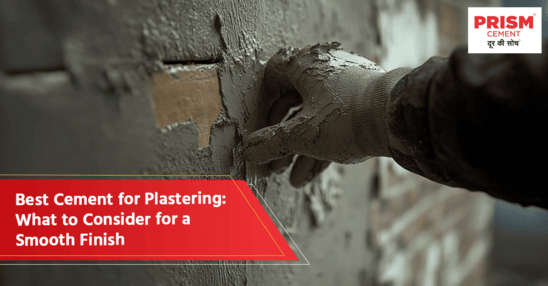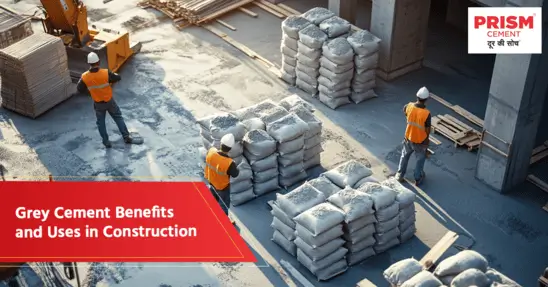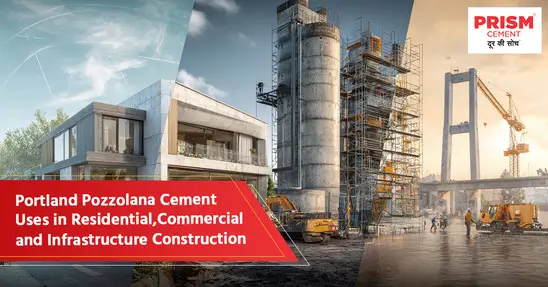Plastering is a crucial part of any construction or renovation project, providing the final touch for walls and ceilings. Choosing the right cement can make a significant difference in achieving a high-quality and smooth finish. In this post, we'll go over key considerations when selecting the best cement for plastering and highlight why Prism Cement is an excellent choice for your project.
Understanding Cement for Plastering
Cement acts as a binding agent in plastering, holding the sand particles together to create a consistent and cohesive mixture when mixed with water. The quality of cement directly affects the strength, durability, and finishing of the plaster.
Key Factors to Consider
Here are some key factors to consider when selecting cement for plastering:
- Strength: The cement should have sufficient strength to provide a durable and long-lasting plaster finish.
- Workability: Good workability is essential for easy mixing, spreading and smooth finishing of the plaster. Cement that mixes well will save time and effort during application.
- Setting Time: The setting time determines how quickly the plaster can transform into solid state while losing its plasticity. Ideal cement has a balance between initial set and workability time.
- Durability: Choose cement that is resistant to cracking, moisture penetration and environmental damage for a long-lasting plaster finish.
Cement and Sand Ratio for Plastering
The strength and quality of plaster depend on the cement-to-sand ratio. A common mix ratio for plastering is 1 part cement to 3 parts sand. However, this can vary based on the thickness required and the specific plastering needs. Always ensure the correct mix ratio to avoid issues like cracking or weak plastering.
Cement Sand Water Ratio for Plastering
The water content in the plastering mix is also crucial for consistency and workability. Too much water can result in a weaker plaster that may crumble or allow moisture penetration. Too less water makes the mixture difficult to apply smoothly. Attaining the right balance is key to a quality plaster.
Best Cement for Plastering: PPC Cement
Portland Pozzolana Cement (PPC) is considered as one of the best choice for plastering. PPC cement is a blend of ordinary portland cement and pozzolana (a natural or industrial material rich in silica and alumina). This combination enhances the cement’s properties, making it ideal for plastering.
Benefits of PPC Cement:
- Greater Strength and Durability: PPC provides excellent long-term strength and helps resist cracking.
- Moisture Resistance: PPC is less prone to water damage, making it perfect for damp areas.
- Eco-Friendly: The use of pozzolana in PPC cement reduces the environmental impact of cement production, as it incorporates industrial by-products.
Why Choose Prism Cement for Plastering?
Prism Cement is a trusted name in the industry, known for its superior performance and consistency. Prism's PPC cement products, such as Prism Champion All Weather Cement, are specifically designed for high-quality plastering and other construction needs.
Key Benefits of Prism Cement for Plastering:
- Superior Quality: Prism Cement produces cement using advanced technologies and stringent quality control measures to ensure top performance.
- Strength and Durability: Prism Cement offers enhanced strength and durability, ensuring a long-lasting plaster finish.
- Expert Support: Prism Cement provides expert guidance and advice to help you choose the right product for your project.
- Wide Range of Options: Whether you need cement for light plastering work or heavy-duty applications, Prism Cement has a solution for all your needs.
Conclusion
When it comes to achieving a smooth and durable plaster finish, choosing the right cement is essential. By opting for PPC cement and using the right plastering mix ratios, you can ensure a flawless result. Prism Cement's high-quality PPC products, along with expert advice, make it an excellent choice for your plastering needs.


.webp)

